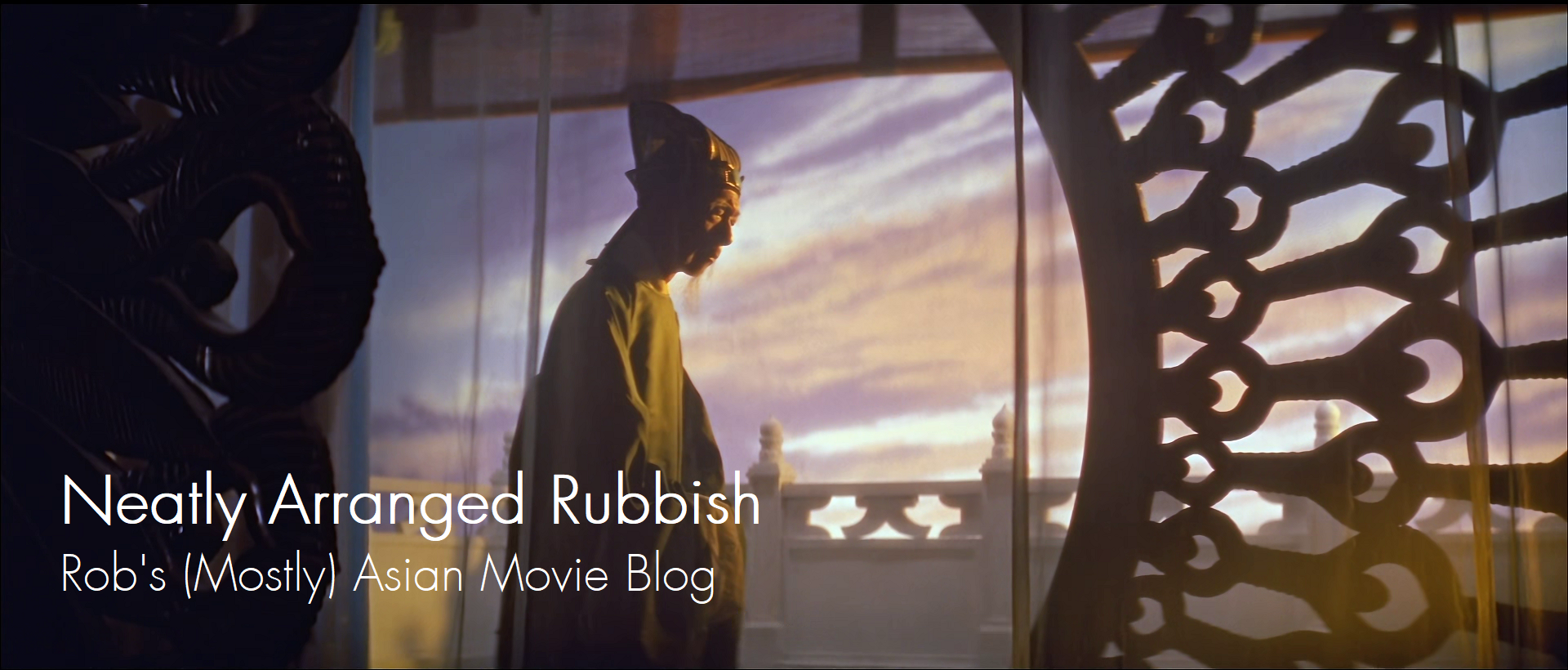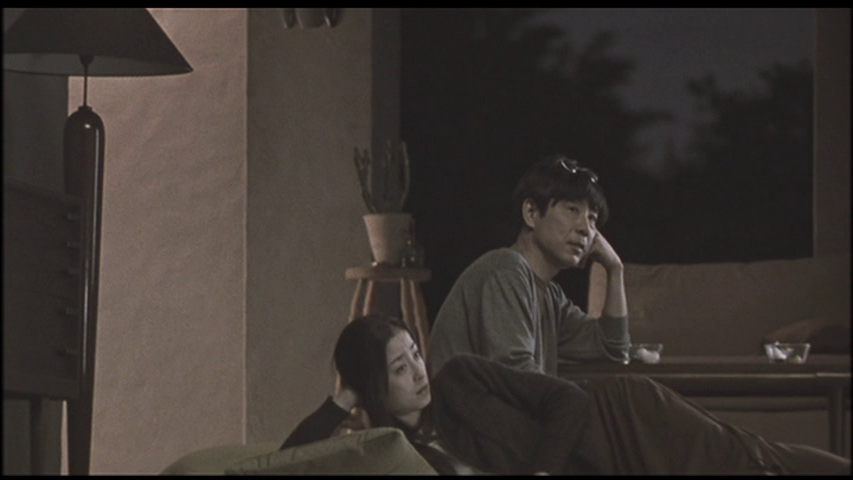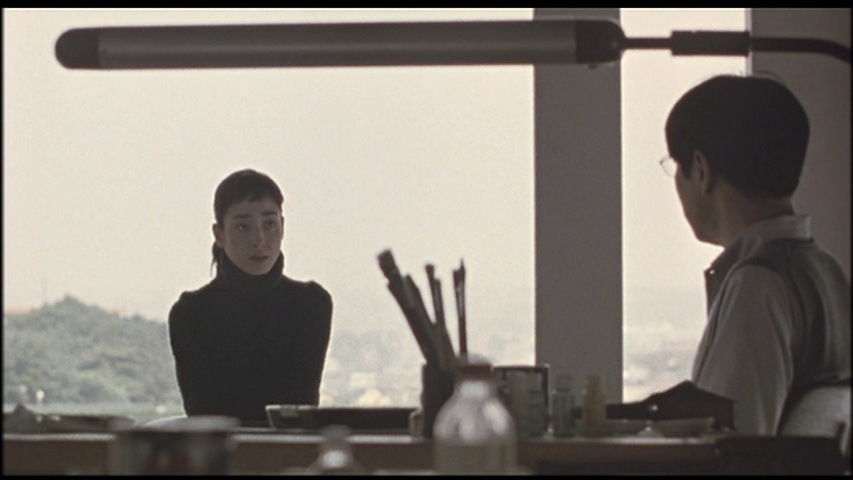Last Updated on October 6, 2020 by rob
Tony (Issei Ogata) a man comfortable in his own insular nature is shaken by the intrusion into his life of a beautiful young workmate named Eiko (Rie Miyazawa). He woos and marries her but when Tony perceives Eiko’s obsession with buying expensive clothes to be out of control he asks her to stop. Eiko agrees but shortly thereafter she dies in a car crash. So Tony hires a young woman who resembles his late wife (Miyazawa, in dual roles) to be his personal assistant and to wear his late wife’s clothes to help him overcome his grief.
A subtle, spellbinding portrait of solitude, memory and transient happiness and one of the best Japanese films of its decade. Basically a two hander with both Ogata and Miyazawa in dual roles (the former plays both Tony and his jazz loving father), the strength of the film lies in the way Tony and Eiko fill a void in each other’s lives that neither realised was even there. Aided by excellent, understated performances in which the characters themselves say little and an explanatory voiceover is used (oddly yet somehow appropriately, the anonymous voiceover is sometimes completed by the characters themselves) the result is both emotionally engaging and yet reflective, like a reverie.
Composer Ryuichi Sakamoto contributes an elegant piano score and the staging of much of the drama – in which the camera simply tracks slowly across the action from left to right until a wall or object obscures the shot, at which point there’s a dissolve to the next scene and the camera movement repeats the left to right move once more – creates a seductive, hypnotic rhythm as if we’re watching a series of tableaux pass before our eyes. It’s wonderfully effective. Neither misanthropic nor melodramatic, it’s a testament to Ichikawa’s portrait of a man who lives contentedly alone – who unexpectedly makes contact and experiences love, who makes one last effort to reach out before solitude once again engulfs him – that the touch of disappointment one feels at a downbeat ending is leavened by a recognition that this is just the way life is. Neither good nor bad, fair or unfair, it’s just life. Highly recommended.
Ryuichi Sakamoto’s score for Tony Takitani:


